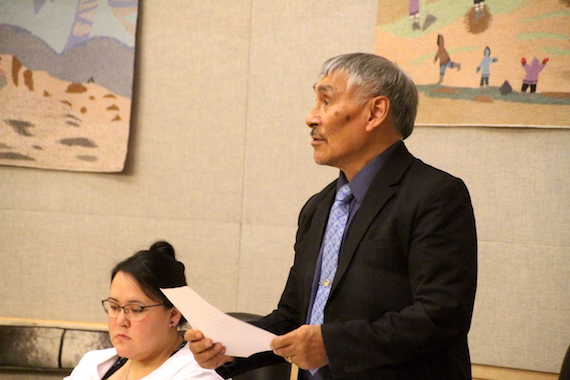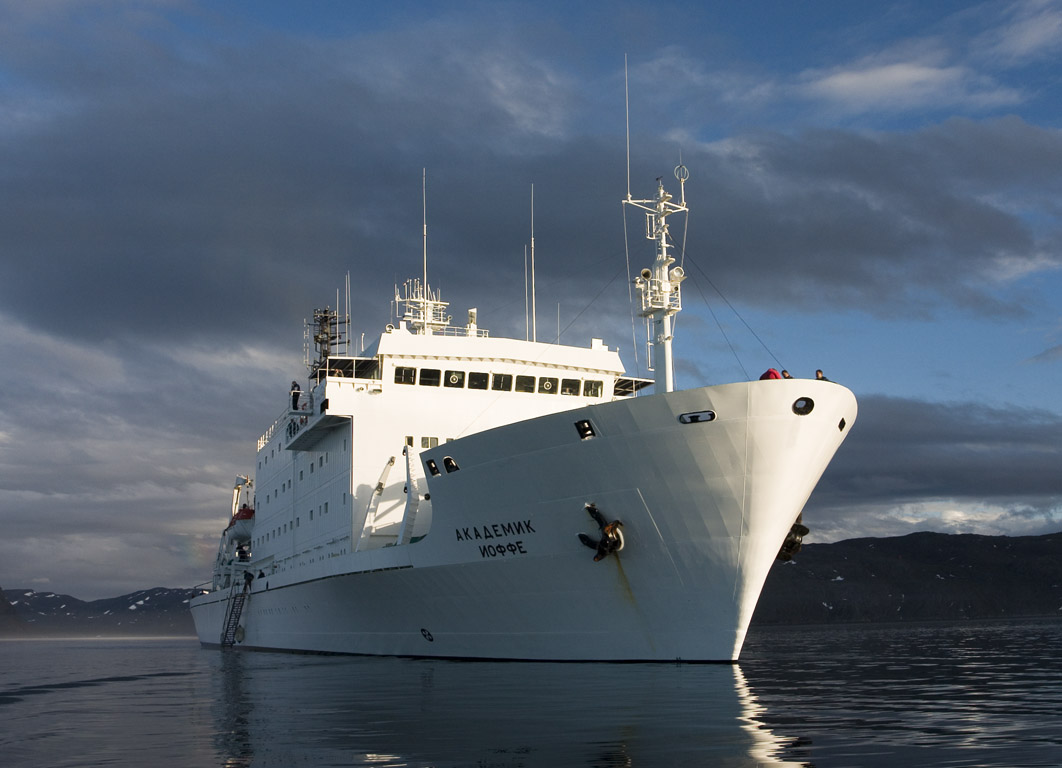Akademik Ioffe grounding prompts Nunavut legislator to call for better safeguards
The grounding of the research ship this summer serves as a reminder of the risks of operating in the area, says Emiliano Qirngnuq, the Nunavut MLA who represents Kugaaruk.

The Nunavut MLA who represents Kugaaruk, Emiliano Qirngnuq, is worried about the risks associated with Arctic cruise ship tourism.
Qirngnuq’s concerns are prompted by the grounding of the Akademik Ioffe about 80 nautical miles north of Kugaaruk on Aug. 24.
“Although we are very grateful that no lives were lost during this incident, and that there appears to have been no serious damage to the environment, it should serve to remind us of the risks in this field,” Qirngnuq told Nunavut’s legislature on Oct. 29 in a member’s statement.
[As ice recedes, the Arctic isn’t prepared for more shipping traffic]
Qirngnuq said the marine tourism industry can provide a lot of economic benefits to Nunavut, especially to small communities like Kugaaruk with limited employment opportunities.
But the MLA for the Netsilik riding also said that in recent years the number of cruise ships visiting communities has increased “significantly,” and, along with that, a need for more measures to keep people and the environment safe.
“The increase needs to be accompanied by appropriate safeguards to ensure the protection of people and the environment,” Qirngnuq said.
“Those of us who have always lived in the Arctic know that although it is the most beautiful place on the planet, it can be very dangerous.”

The federal Transportation Safety Board continues to assess Akademik Ioffe’s grounding, although no information is available yet on the TSB’s next step, a spokesperson for the TSB told Nunatsiaq News Oct. 20.
On Sept. 14, Akademik Ioffe did head south on its own power, after Transport Canada determined that it could transit safely. The ship arrived at its final destination in Les Méchins, Que. on Sept. 25, Transport Canada said.
While no fuel spill or loss of life occurred when the Akademik Ioffe grounded in August, Qirngnuq said he wants to know if Nunavut’s Department of Economic Development and Transportation is working with the Department of Environment so that communities are adequately prepared to respond to incidents involving large cruise ships or large-scale fuel spills.
During question period, David Akeeagok, the minister responsible for tourism, told Qirngnuq that he had raised the matter during a meeting with the minister of fisheries and oceans last week.
“I conveyed that concern that we were lucky again. This is second time a cruise ship has gone aground and I told him that we are lucky again,” said Akeeagok, referring to the grounding of the Clipper Adventurer near the western Nunavut community of Kugluktuk in 2010.
Akeeagok said the Canadian Coast Guard oversees any oil spills or any accidents on the water “and they should be more prepared.”
“They need to be prepared and be ready and be responsive because cruise ships that are coming are coming in larger numbers,” he said.